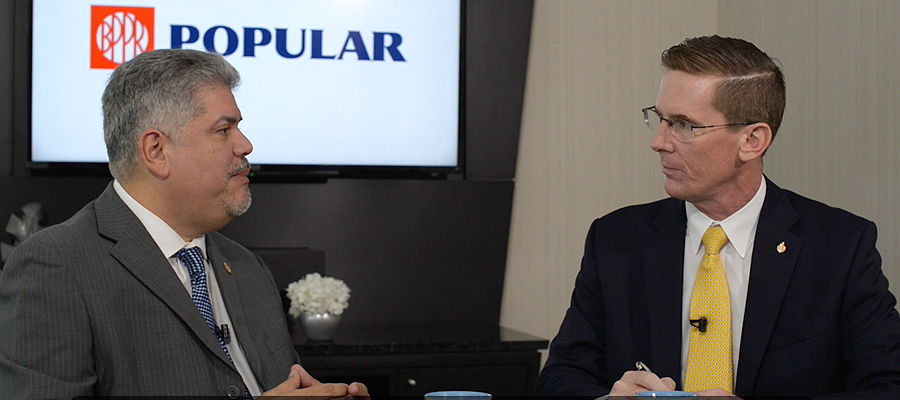Feb 09
Business owners: learn how to save on your taxes
February 09, 2016
 We list some of the deductions you may include on your tax return and examples of common errors when filing. This advice will save you time and money.
Small and medium-size businesses have a series of tax responsibilities, but there are also deductions they can claim on their returns to reduce their tax burden.
Jerry De Córdova, a lawyer and Certified Public Accountant (CPA), lists some of the most important deductions you can take advantage of to reduce your payments, both on your income tax return and on your payments to the Municipal Revenue Collection Center (CRIM for its Spanish acronym).1 Take note!
CRIM deductions
Businesses must pay taxes on personal property used in the business. Examples of personal property include: cars, cash on hand and machinery. Business owners can benefit from some deductions, however.
We list some of the deductions you may include on your tax return and examples of common errors when filing. This advice will save you time and money.
Small and medium-size businesses have a series of tax responsibilities, but there are also deductions they can claim on their returns to reduce their tax burden.
Jerry De Córdova, a lawyer and Certified Public Accountant (CPA), lists some of the most important deductions you can take advantage of to reduce your payments, both on your income tax return and on your payments to the Municipal Revenue Collection Center (CRIM for its Spanish acronym).1 Take note!
CRIM deductions
Businesses must pay taxes on personal property used in the business. Examples of personal property include: cars, cash on hand and machinery. Business owners can benefit from some deductions, however.
- $50,000 exemption when sales volume is less than $150,000. Claiming this one is easy. You just have to check the appropriate box on the first page of the CRIM return. De Córdova notes, however, that some business owners do not claim this deduction because they do not know about it.
- Control the amount of cash on hand on December 31. This is the date used to compute the tax on personal property. Therefore, De Córdova, reminds business owners the importance that on or before that date, they should deposit this cash in the bank. “Once the money is deposited in a financial institution, it is no longer considered cash on hand. This way you are freed from paying tax for that amount.
- Remove depreciated assets from the books. Remove old or unused equipment from your books. Refine the records of personal property and remove the assets that are unused and depreciated, such as damaged, old and obsolete machinery. This way, you can avoid paying tax for equipment or furniture that is not used. Otherwise, you have to pay taxes on a minimum residual value.
- Evaluate whether it would benefit you to locate inventory in a duty-free zone. These are areas that offer tax benefits. You can locate your inventory in a zone while you sell it and, meanwhile, avoid paying taxes on the property. If you want, you can take the steps to establish warehouses as a duty-free zone on your property. Other options include paying a monthly fee to store your property in a previously designated zone. “It’s all a question of comparing the costs of leasing space versus the tax benefits,” explained De Córdova.
- Deduction for donations to non-profit entities. Business owners who donate an appreciated asset to an entity achieve two purposes: contributing to the entity and avoiding capital gains.
- Tax exemption benefits. Entrepreneurs should review which exemptions their businesses qualify for, based on their business activity. Some exemptions apply under Law 20 (export businesses) and Law 73 (certain eligible activities, such as manufacturing).
- Consider the benefits of an LLC status to avoid double taxation. If you are the owner of a small business, it may benefit you to incorporate under the requirements of a Limited Liability Company (LLC). These entities can choose this tax treatment. In that case, income is transferred to the owners and they pay taxes on their individual returns.

Tax exemptions for small and medium businesses
- Filing the return without signing it. Sometimes, because they’re in a hurry or are not careful, business owners forget to sign the tax return. Although it may sound surprising, this is one of the most common errors. If you forget your signature, the agency will send you a document that you must complete and return by mail to amend the error.
- Incorrect valuation of inventory. Inventory is taxed based on the average value it had during the year and not as of December 31, when the cost is generally higher. Therefore, De Córdova recommends that business owners be careful to submit the average value when they file their return with the CRIM.
- Paying for assets that are no longer used. Remove from your books any depreciated assets such as furniture, equipment and machinery that you are no longer using. If you keep these assets on your books, you will have to pay taxes on a minimum residual value, even if they are old and are no longer of any use.
- Making payments in installments. You should make payments to CRIM on or before the stipulated dates to take advantage of the 5% discount.


